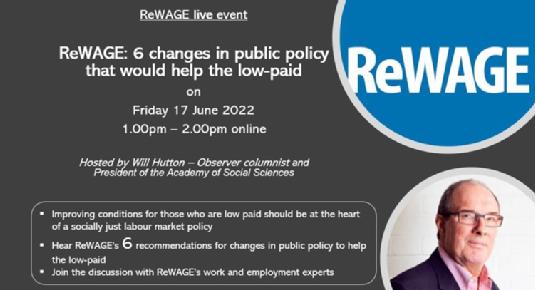IER News & blogs
Conference of the International Working Party on Labour Market Segmentation
IER, together with Copenhagen Business School and FAOS, University of Copenhagen, organised the 42nd conference of the International Working Party on Labour Market Segmentation (IWPLMS), which took place at Copenhagen Business School on 5-6 September. The conference was well attended and both international academic scholars and practitioners took part in the conference.
EU’s Pay Transparency Directive – A lost opportunity for the UK? Blog by Trine P. Larsen
It is nearly fifty years ago that the EU passed its first directive on equal pay for equal work or work of equal value. While mobilising the female workforce has been successful in most European countries, a persistent gender pay gap remains across Europe. To address these structurally embedded gender inequalities, the EU and its Members States have recently adopted the EU’s Pay Transparency Directive (2023). Although the UK is no longer an EU Member State and is not obliged to implement this directive, it remains to be seen whether the newly appointed Labour government will follow suit and adopt similar measures as part of its intention to address the pay inequalities in its election manifesto.
Event run by ReWAGE: Six changes in public policy that would help the low-paid
 Hosted by Will Hutton, the online event will discuss the 6 recommendations made in the recently-published policy briefing: Beyond the National Living Wage: further proposals for addressing low pay.
Hosted by Will Hutton, the online event will discuss the 6 recommendations made in the recently-published policy briefing: Beyond the National Living Wage: further proposals for addressing low pay.
Speakers from ReWAGE’s Expert Group include Professor Edmund Heery (Cardiff University) and Professor Irena Grugulis (Leeds University).
Register for the open event, taking place on Friday 17 June, 1pm – 2pm, on the Eventbrite page.
The recording is now available here.
IER research used to inform apprenticeship pay setting
 The Low Pay Commission's Report 2020 was launched on 9th December 2020, and was used to set National Minimum Wage (NMW) rates for 2020/21 as announced by the Chancellor Rishi Sunak on 25th November 2020.
The Low Pay Commission's Report 2020 was launched on 9th December 2020, and was used to set National Minimum Wage (NMW) rates for 2020/21 as announced by the Chancellor Rishi Sunak on 25th November 2020.
IER's report 'How Employers Set Pay For Apprentices' involved a multivariate analysis of apprenticeship pay data, and 30 case study interviews with employers delivering apprenticeship frameworks where low pay was greatest.
The study found that the minimum wage for apprentices applied almost exclusively to new recruits rather than existing employees, who were paid their existing rate for the job. For new recruits, few employers paid the apprentice minimum wage. Instead they added a bonus: as a recognition of the apprentices contribution to the business; out of 'fairness' as part of a Corporate Responsibility; and due to wider market rates either as a result of market forces or because of occupation or sector wide agreed pay rates. The NMW apprentice rate was most likely to be used in those sectors where fully qualified workers were paid the NMW age rate in order to maintain differentials.
The gender pay gap - Blog by Dr. Erika Kispeter
 Motto: “Very much enjoying all the people trying to explain away the pay gap stats by saying 'oh guys don't worry it's not a REAL pay gap, it's just that all our cleaners and PAs are women, and CEOs and directors are men!'” (@RebeccaCNReid on Twitter)
Motto: “Very much enjoying all the people trying to explain away the pay gap stats by saying 'oh guys don't worry it's not a REAL pay gap, it's just that all our cleaners and PAs are women, and CEOs and directors are men!'” (@RebeccaCNReid on Twitter)
Regulation requires large companies, charities and public sector organisations in England, Wales and Scotland to disclose their gender pay gap data every year. The deadline for publishing gender pay data for the financial year 2018-19 has now passed and the Equality and Human Rights Commission (EHRC) has promised to take action against all organisations which missed the deadline. Today activists, journalists and academics are poring over the tables and writing up early findings.
I will not engage with the findings but try to look at a few general issues which have emerged from the data and the coverage.
Firstly, there is a confusion between the gender pay gap and un/equal pay. Equal pay means that men and women at the same organisation, performing equal work must be given equal pay, in accordance with the Equality Act 2010 . Gender pay gap measures the difference in the average (hourly) wage of all men and women employed by an organisation. The pay gap is given as a percentage of men’s earnings – in 2018 it was at 17.9% in the UK. It does not measure the difference between the pay of men and women doing the same job, rather, it reflects the differences in men and women's work more generally, including the effect of men and women working in different occupations and in different time patterns. It also reflects the lack of women in more senior roles.
Secondly, the gender pay gap at a given organisation may widen from one year to the next even if the employer truly supports gender equality. This can be the result of a number of senior women leaving the company, or a number of junior women joining the company and taking up relatively low-paid positions. Following the same logic, the pay gap can be reduced by making lower paid women redundant and outsourcing their work, or reducing the pay of higher-earning men.
Overall, the introduction of mandatory gender pay gap reporting was an important step. Companies across the UK (with the exception of Northern Ireland) can no longer remain anonymous and there is hope that the public scrutiny provides an incentive for employers to improve their figures and avoid ‘reputational damage’.
